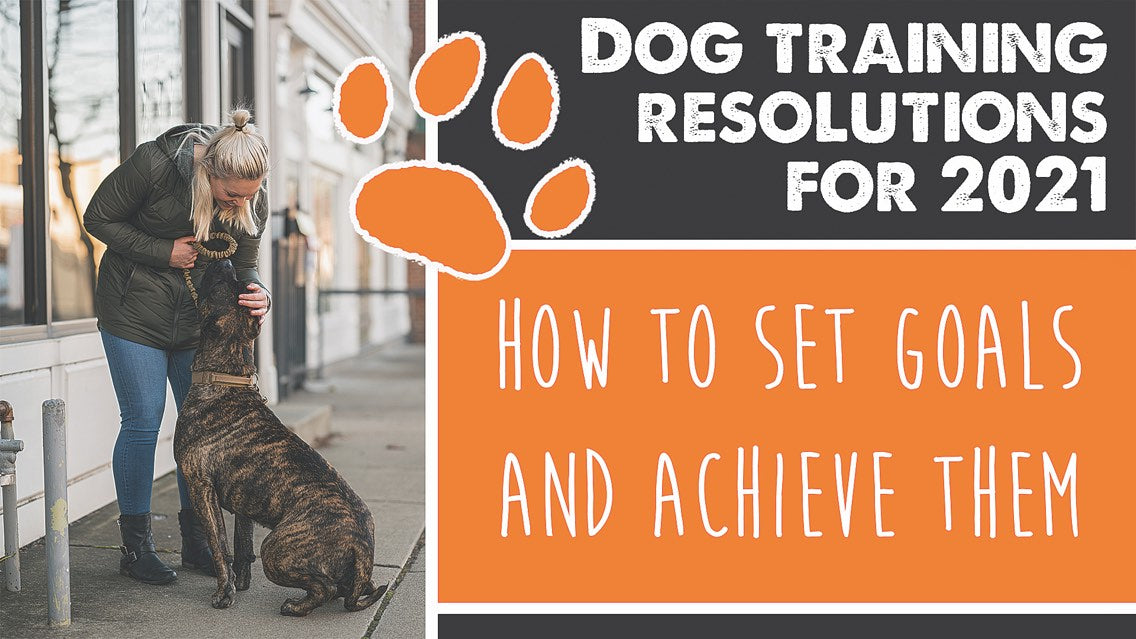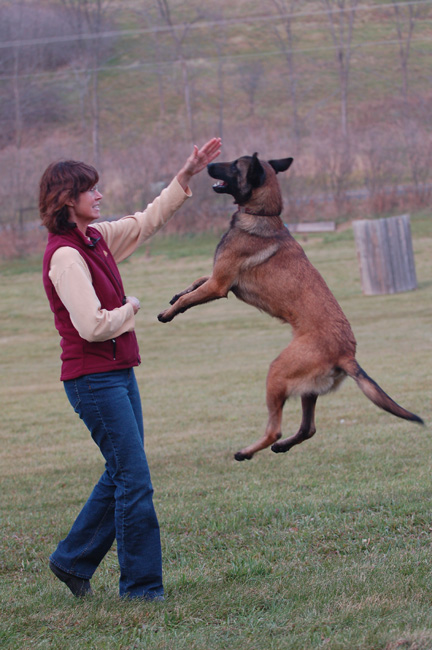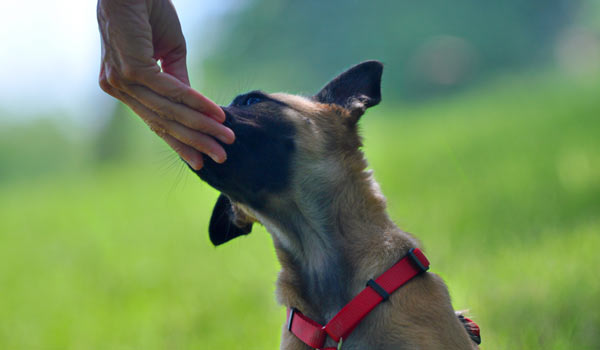Reach Your Dog's Training Goals: Expert Tips & Tricks

Understanding Dog Training Basics
Importance of Setting Training Goals
When you train your furry friend, setting clear and achievable training goals is key to success. By outlining what you hope to achieve with your dog, you are establishing a roadmap for progress. It's important to keep these goals realistic and measurable so you can track your pup's development and celebrate their milestones along the way.
Remember, patience is your best friend during this process!
Positive Reinforcement Techniques
Positive reinforcement techniques can make the training experience enjoyable and rewarding for you and your dog. Instead of focusing on punishment for unwanted behaviours, try rewarding good behaviour with treats, praise, or playtime. This not only motivates your dog to repeat the desired behaviour but also strengthens the bond between you. Remember, consistency is key when using positive reinforcement – make sure to reward good behaviour every time it occurs.
By setting clear training goals and employing positive reinforcement techniques, you are setting yourself and your dog up for success. Keep a positive attitude, stay consistent, and, most importantly, enjoy the journey of learning and growing together. With dedication and love, you and your furry friend can achieve anything!
Assessing Your Dog's Needs
Understanding Your Dog's Breed and Behavior
When training your dog, understanding their breed characteristics and behaviour traits is crucial. Different breeds have different temperaments and tendencies, so knowing what makes your furry friend tick can greatly impact your training approach.
For example, a herding breed may respond well to tasks that engage their natural instincts, while a toy breed might prefer gentler, play-based training methods. By tailoring your training techniques to suit your dog's specific needs, you can set them up for success.
Identifying Areas for Improvement
Every dog has their strengths and weaknesses when it comes to training. Take the time to identify areas where your dog may need extra support or guidance. Whether it's mastering basic commands, curbing unwanted behaviours, or building confidence, pinpointing these areas for improvement allows you to focus your training efforts effectively.
Remember, patience and consistency are key when working on challenging areas – small steps and positive reinforcement can go a long way in helping your dog overcome obstacles.
Creating a Training Plan
Setting Clear and Achievable Goals
When training your dog, it's essential to set clear and achievable goals for you and your furry companion. By establishing what you want to accomplish, whether it's mastering a new trick or addressing a behaviour issue, you can create a roadmap to success.
Break down your goals into smaller, manageable steps to make progress more attainable. Celebrate each milestone reached, no matter how small, to keep you and your dog motivated.
Establishing Consistent Training Routines
Consistency is key in dog training – creating a routine that you and your dog can rely on will yield the best results. Set aside dedicated time each day for training sessions, ensuring they are structured and focused. Repetition helps reinforce learning and build trust between you and your dog.
Use positive reinforcement techniques such as treats, praise, or play to encourage good behaviour and strengthen the bond you share. Remember, patience and persistence will pay off in the long run as you work together towards your training goals.

Choosing the Right Training Tools
Collars, Leashes, and Clickers
When it comes to training your dog, choosing the right tools can significantly affect your training sessions' effectiveness. Select a collar and leash that are comfortable and appropriate for your dog's size and behaviour. Clickers can be useful for marking desired behaviours and communicating with your dog during training.
Remember, consistency is key when using these tools, so be sure to use them in a clear and positive manner to help your dog understand what is expected.
Interactive Toys and Treats for Rewards
Interactive toys and treats are essential components of a successful training plan, adding fun and motivation to the learning process. Choose toys that engage your dog’s mind and provide opportunities for enrichment and play during training breaks. Treats can be powerful rewards for good behaviour, so select high-quality, tasty options that will keep your dog eager to learn and participate.
By incorporating these tools into your training routine, you can make the learning experience enjoyable for both you and your furry companion.

Implementing Training Methods
Obedience Training Techniques
When you are training your dog, remember that selecting the right tools plays a crucial role in determining the success of your sessions. Ensure that you choose a collar and leash that are both comfortable and suitable for your dog based on their size and behaviour.
Clickers can be beneficial for reinforcing desired behaviours and facilitating clear communication during training. Consistency is key when using these tools, so make sure to employ them positively and consistently to help your dog grasp what is expected.
Behavior Modification Strategies
Interactive toys and treats are vital elements of a fruitful training regimen as they help to inject excitement and encouragement into the learning process. Opt for toys stimulating your dog's mental faculties and offering enrichment and amusement during training intervals. Treats serve as effective rewards for good conduct, so pick flavorful and high-quality options that will maintain your dog's enthusiasm for learning and participation.
By integrating these tools into your training schedule, you can transform the learning process into an enjoyable experience for both you and your beloved pet.

Overcoming Challenges
Dealing with Setbacks and Frustrations
As you delve into training your dog, it is normal to encounter setbacks and moments of frustration. Progress takes time, and setbacks are part of the learning process. When faced with challenges, try to stay patient and maintain a positive attitude. Reflect on what might have caused the setback and make adjustments as needed. Consistency in training and a calm demeanour will help you and your dog overcome obstacles and progress towards your training goals.
Seeking Professional Help When Needed
If you struggle to make progress or feel overwhelmed, do not hesitate to seek professional help from a certified dog trainer or behaviourist. These experts have the knowledge and experience to address complex training issues and provide tailored solutions for you and your dog. Working with a professional can bring a fresh perspective, new techniques, and renewed motivation to your training sessions. Remember, asking for help shows strength and dedication to your dog's well-being.

Tracking Progress and Adjusting Goals
Monitoring Your Dog's Training Development
As you continue training your dog, it's important to closely monitor your companion's development. Keep track of the behaviours and commands your dog has mastered and areas that still need improvement.
By observing your dog's progress, you can celebrate small victories and identify areas where additional work may be needed. Remember that every dog learns at their own pace, so be patient and supportive throughout the training process.
Modifying Goals Based on Progress
When it comes to setting training goals, flexibility is key. As you track your dog's progress, be prepared to adjust your training goals accordingly. If your dog is excelling in certain areas, challenge them with more advanced tasks.
On the other hand, if certain behaviours are proving challenging, consider breaking them down into smaller steps or seeking alternative training methods. By adapting your goals to reflect your dog's achievements and struggles, you can ensure that your training remains effective and rewarding for both you and your furry friend.

Celebrating Achievements
Recognizing Milestones and Progress
As you continue on this exciting training journey with your furry companion, remember to celebrate the milestones and progress your dog has made. Reflect on the behaviours and commands your dog has mastered, and appreciate the effort you and your dog have put into the training process.
Acknowledging the progress made, no matter how small, can boost your motivation and strengthen the bond between you and your canine friend.
Rewarding Your Dog for Success
One of the most joyful parts of training your dog is rewarding them for their successes. Whether it's with a tasty treat, a favourite toy, or simply with praise and affection, rewarding your dog reinforces positive behaviours and encourages them to continue learning.
Celebrate each achievement, no matter how minor, to keep your dog motivated and engaged in the training sessions. Remember, training should be a fun and rewarding experience for both you and your loyal companion.

